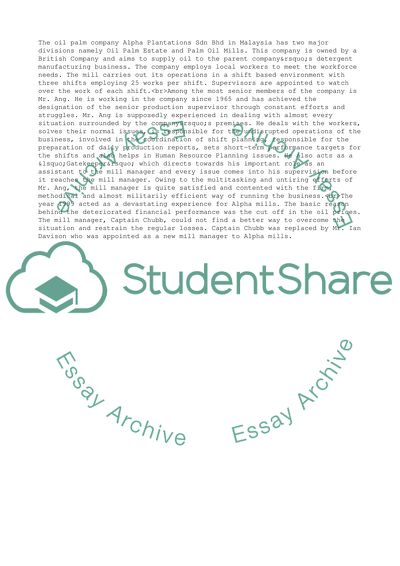Cite this document
(“Alpha Plantations and Major Crisis in 1999 Term Paper - 1”, n.d.)
Retrieved from https://studentshare.org/business/1418239-managing-work-and-people-case-study-analysis
Retrieved from https://studentshare.org/business/1418239-managing-work-and-people-case-study-analysis
(Alpha Plantations and Major Crisis in 1999 Term Paper - 1)
https://studentshare.org/business/1418239-managing-work-and-people-case-study-analysis.
https://studentshare.org/business/1418239-managing-work-and-people-case-study-analysis.
“Alpha Plantations and Major Crisis in 1999 Term Paper - 1”, n.d. https://studentshare.org/business/1418239-managing-work-and-people-case-study-analysis.


